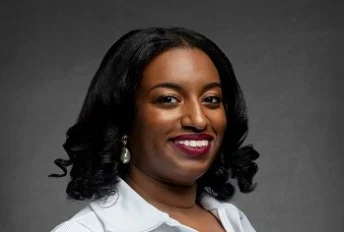University of Pretoria Transformation Office Hosts Dialogue on Supporting Black Women Professionals
On July 16, 2024, the Transformation Office at the University of Pretoria hosted Dr. Di-Tu Dissassa, a U.S. Fulbright Scholar from the University of Maryland, for a hybrid dialogue titled “Creating Racially and Gender-Conscious Spaces and Healing for Black Women” with Mamosa Makaya (U.S. Embassy Pretoria), Vuyisa Mamanzi (University of Pretoria –Centre for Sexualities, AIDS and Gender), Kiyah McDermid (University of Maryland), and Prof. Candace M. Moore (University of Maryland).
The dialogue, which was a hybrid event, focused on the experiences of black women in work environments that are shaped by race and gender dynamics, and examined how our collective agency, healing and shared partnerships can empower these spaces and contribute to the occupational wellness of black women. This is the third hybrid dialogue and is part of a transdisciplinary series on black women professionals in the workplace at historically white universities.
Dr Di-Tu Dissassa recently graduated from her doctoral program. Her dissertation focused on the occupational wellness of live-in professionals on campus. In 2022, she presented at EASA (Education Association of South Africa) on educational ties to occupational wellness for Sub-Saharan African women.
“In my research, I consider how race and gender influence black people in spaces that historically were white, and how those spaces influence black people’s well-being,” Dr Dissassa explains. “Aspects of occupational wellness overlaid with sociological, psychological and organisational theories give people the opportunity to raise their consciousness regarding worker well-being in education spaces today.”
She says an article entitled ‘A feminist perspective on COVID-19 and the value of care work globally’ by Kate Bahn, Jennifer Cohen and Yana van der Meulen Rodgers inspired her to consider the care work that she had seen women perform in her own life.
“My father is from Ethiopia and when I visited home, I was always in awe of my grandmother – the way she handled and managed much of the work on their farm, and how she supported the surrounding community with care work,” Dr Dissassa recalls.
She adds that she also thought of her black American mother who, while having a job and business, managed to spend an inordinate amount of time dedicated to her and her father’s well-being, often to the detriment of her own.
From the seminars and discussions, a key insight that emerged about black women’s experiences in work environments that are influenced by race and gender dynamics was their strong desire for agency and collective action. Many are seeking spaces where they can support one another and discuss the intersectional challenges they face. However, they often lack the time or energy to organise these gatherings and initiatives.
Collective agency, healing practices and shared partnerships can significantly empower spaces for black women professionals and enhance their occupational wellness, according to Dr Dissassa. These approaches provide actionable ways for them to address and navigate systemic oppression. By focusing on these elements, women can feel more liberated to take bold actions and drive change within their workplaces. Building strong partnerships and networks is crucial, and embracing anti-oppressive policies helps to create a supportive environment
“It is important to encourage others who are not black women to consider their own position in the workplace and how they can support or share their power to create equity for black women,” Dr Dissassa says.
To better support black women professionals and foster more inclusive and equitable work environments, institutions should focus on both listening to and acting on their needs, she adds. One effective strategy is to provide funding and flexibility that allow women to advance their careers. This can help increase their representation in upper administrative roles, where they can have a greater impact on shaping the institution’s policies and culture.
“The most rewarding aspect of leading these dialogues is seeing other black women feel truly seen and heard,” Dr Dissassa says. “It is also gratifying to observe their desire to build more sustainable spaces even after the project concludes.”
The next dialogue, focusing on sisterhood, healing and rest, will take place on 12 August.

